Table of Contents
- Is Bluetooth Radiation Dangerous?
- Noise-Cancelling Bluetooth Earbuds: Immersive Audio, Peaceful Experience
- Separating Fact from Fiction in Wireless Earbud Radiation
- Can I Protect Myself From Bluetooth Earbuds Radiation?
- Furthermore, we advocate the following measures:
- Bluetooth Earphones with a Wire: Achieving the Ideal Balance
- Frequently Asked Questions
- What type of earbuds are best?
- What to look for when buying earbuds?
- Is it safe to sleep with Bluetooth earbuds?
- Conclusion
Bluetooth earbuds have transformed how we listen to music, make phone calls, and enjoy audio material on the road. However, with this, a question arises: Can Bluetooth earbuds radiation cause you harm? As opposed to traditional wired headphones, these earbuds minimize the nuisance of tangled cords while providing increased flexibility and convenience.
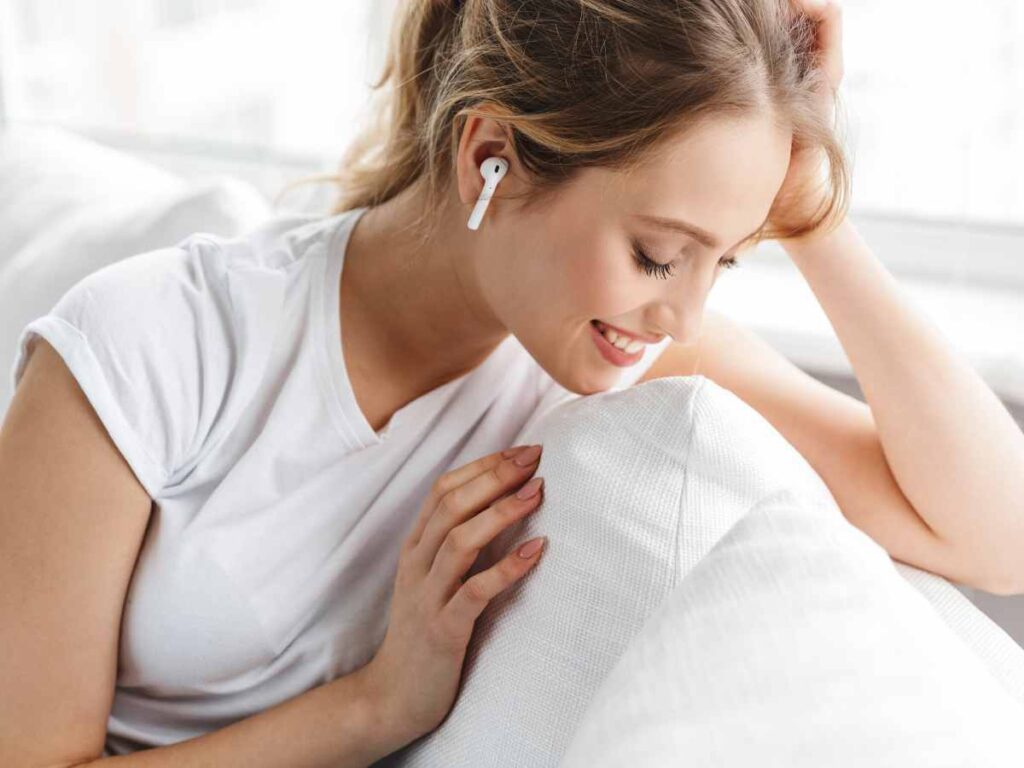
These small, wireless gadgets link to your smartphone or any similar technology-enabled device, allowing you to listen to high-quality audio without the limitations of cords.
Bluetooth was originally never designed to be used for audio. The standard was developed in the mid-1990s as a secure method of wirelessly transmitting data between devices, and it was later expanded to establish wireless personal area networks (WPANs).
It is presently one of the most widely used wireless technologies on the planet. Bluetooth technology can be found in peripherals such as keyboards and mouse, game controllers, printers, and audio equipment.
It transmits data via the 2.4GHz radio frequency (RF) band, which Wi-Fi and cordless phones also use. It also uses the same frequencies as microwave ovens, fluorescent lights (including CFL bulbs), and smart home gadgets that use the Zigbee mesh network.
Is Bluetooth Radiation Dangerous?
One common problem with this Bluetooth technology is radiation exposure. This is because these devices employ radiofrequency (RF) waves, classified as non-ionizing radiation, as opposed to ionizing radiation released by sources such as X-rays or radioactive materials.
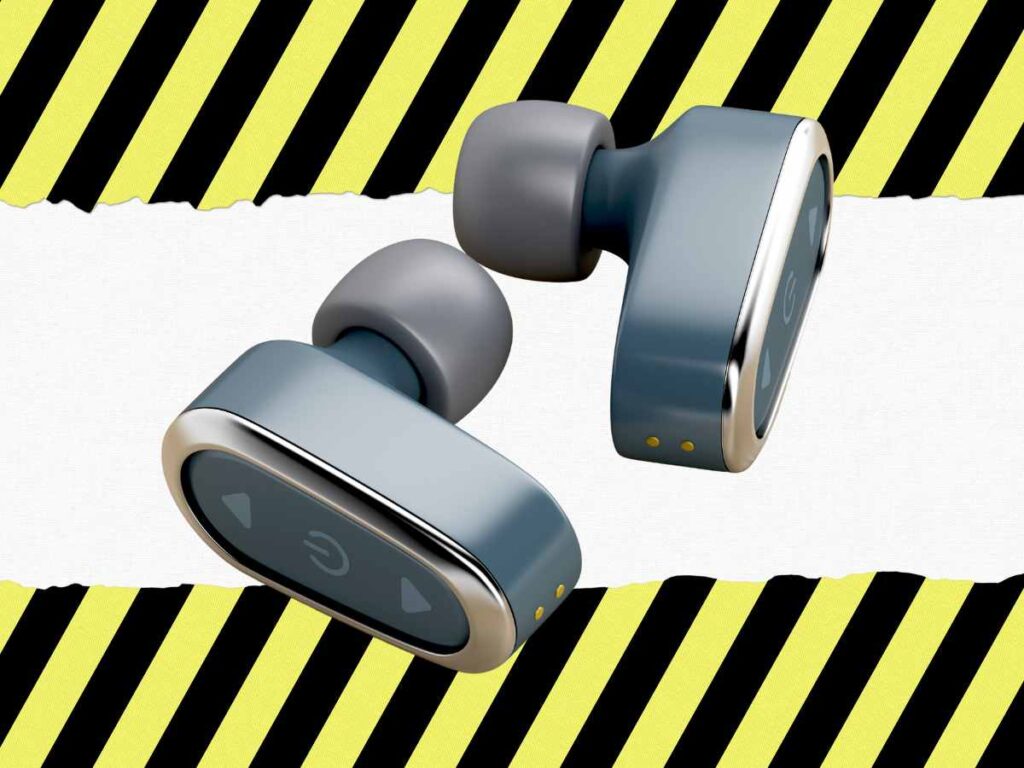
Non-ionizing radiation is typically regarded as safe for daily use. Furthermore, Bluetooth earbuds emit much lower RF wave levels than cellphones, making them a safe alternative for most consumers.
However, by following manufacturer guidelines and taking breaks from continuous, any harmful effects can be reduced.
Noise-Cancelling Bluetooth Earbuds: Immersive Audio, Peaceful Experience
Noise-cancelling earbuds elevate wireless audio by actively minimizing external noise. These bluetooth earbuds use modern technology to monitor ambient sounds and emit waves that drown out the noise.
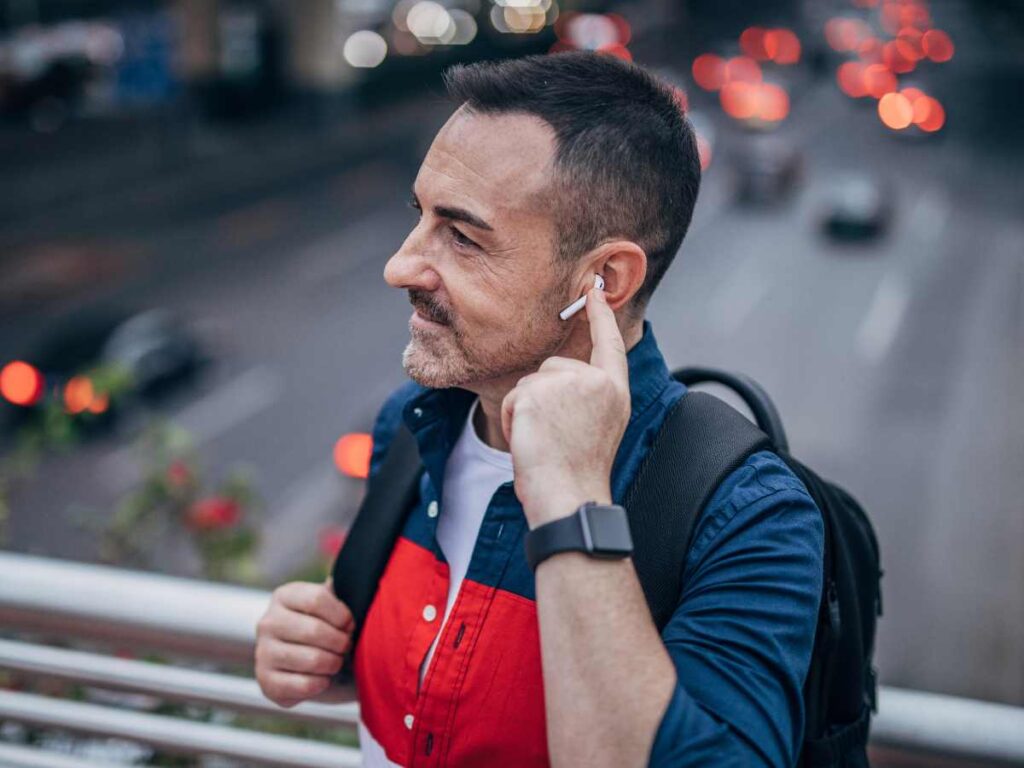
So whether you’re on a packed train, in a bustling café, or simply looking for peace & quiet, noise-cancelling Bluetooth earbuds provide an immersive audio experience by blocking out unwanted distractions and allowing you to focus on what matters most.
Separating Fact from Fiction in Wireless Earbud Radiation
As wireless earphones become more popular, concerns regarding potential radiation exposure surface. When wireless earphones, including Bluetooth earbuds, generate low RF waves, studies have shown that radiation exposure is limited and well within acceptable limits.
Furthermore, regulatory authorities like the Federal Communications Commission (FCC) impose stringent restrictions to guarantee. As a result, these devices satisfy safety standards. So, don’t worry; Bluetooth earbuds don’t pose severe radiation risks.
Can I Protect Myself From Bluetooth Earbuds Radiation?
There are some possible ways to reduce the effects of Bluetooth radiation:
- Always use Airplane Mode: When your phone is in Airplane Mode, all wireless transmissions are disabled. There will still be some radiation emitted by your phone, but it will be greatly decreased while it is not attempting to talk with cell towers or connect to the internet. This is due to the fact that Airplane Mode disconnects your phone from WiFi, bluetooth earbuds, and cellular data. This prohibits your phone from emitting EMF waves in order to stay connected.
Another advantage of using Airplane Mode is that your battery will last longer, and your devices will charge faster! Using this mode when you aren’t actively using your device is a wonderful approach to protect yourself.
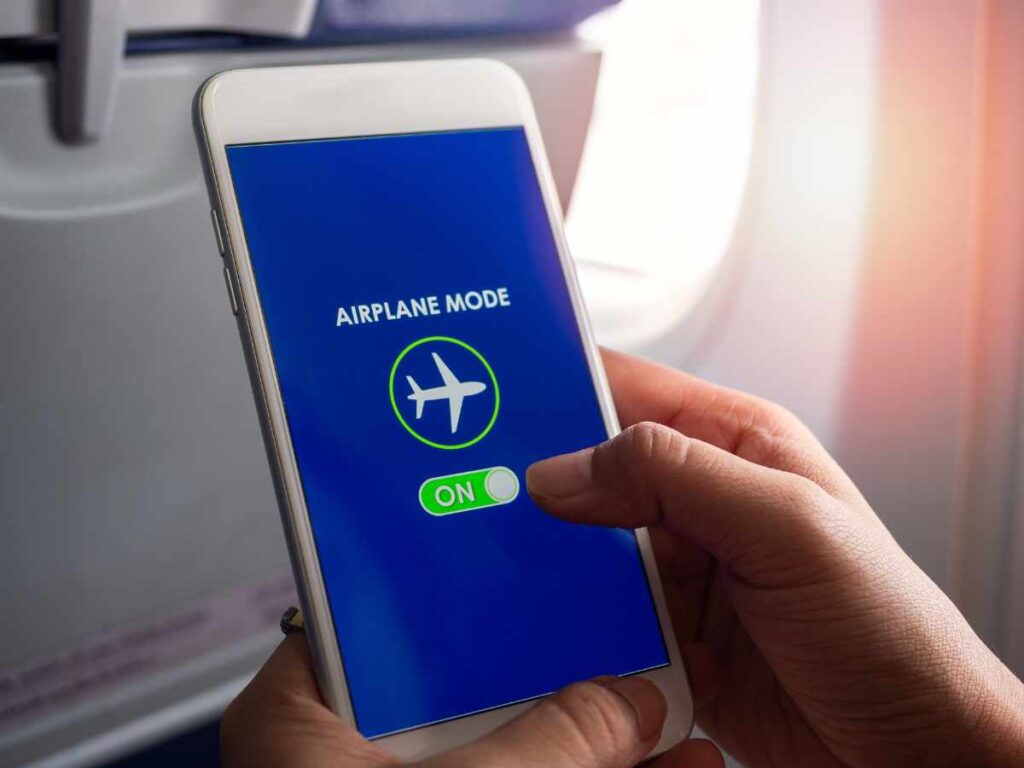
- Maintaining a significant distance from your phone, especially when using it for an extended period of time, is also recommended. This is especially true if you have poor reception, as phones may increase power consumption to compensate for weak signals.
- Furthermore, children are more sensitive to radiation. As a result, it is prudent to minimize their exposure to various EMR-emitting devices at the same time. Avoid exposing kids to a mobile phone, bluetooth earbuds, Wi-Fi, and microwave all in the same room, for example.

- Finally, choose one with a lower SAR rating when selecting a device. For added security, look for brands that have a history of meeting FCC criteria.
In general, it makes sense to utilize mobile radio applications only when absolutely essential in order to limit potential (yet unidentified) health concerns.
Furthermore, we advocate the following measures:
- If wireless technology can be avoided, prefer cable connections.
- If you don’t need Bluetooth applications (such as a wireless mouse), turn them off.
- When purchasing headsets and Bluetooth headphones, keep the power classes in mind.
- It is dangerous if you listen to it at a high level. When only one ear is listening to a persistently loud source, the other ear will adjust as though it is listening to an equally loud source. Therefore, it is important to ensure that you listen to it at a normal volume.

Bluetooth Earphones with a Wire: Achieving the Ideal Balance
Bluetooth earphones with a wire offer a unique hybrid solution for individuals who want the ease of this technology and the security of a physical connection.
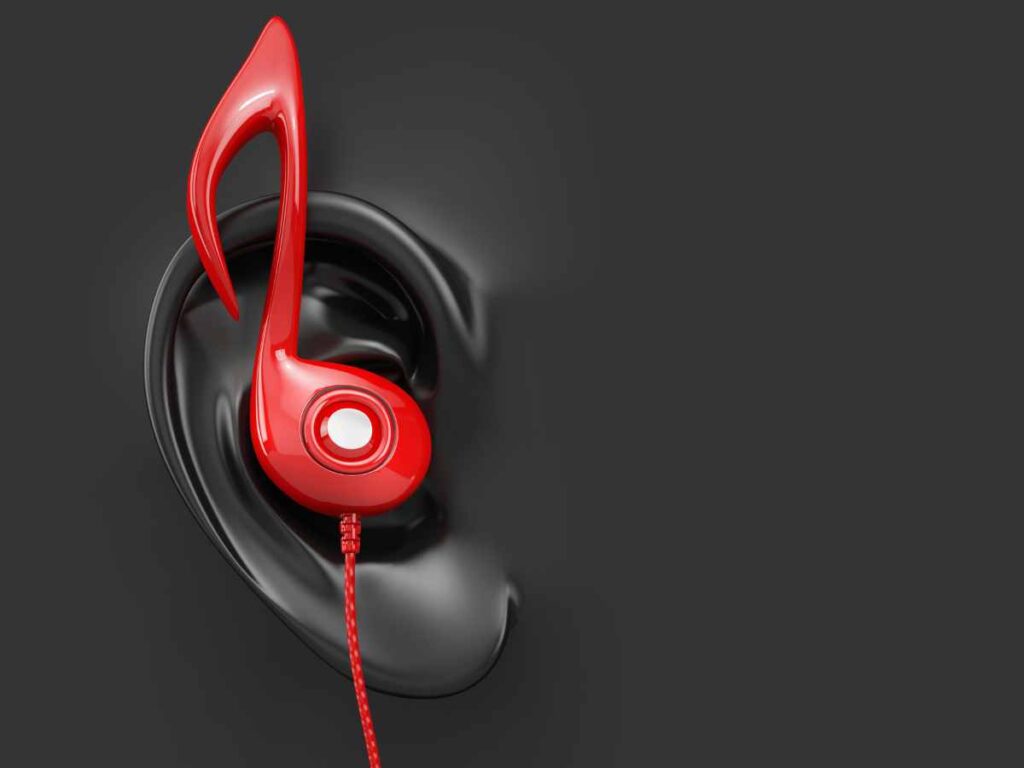
These earbuds provide wireless communication while also including a cord that links the two earpieces. This construction adds stability, lowers the chance of losing individual earbuds, and ensures continuous audio transmission, making them a popular choice among many users.
Frequently Asked Questions
What type of earbuds are best?
We believe wired headphones are the best when comparing wireless and wired earbuds. While many people enjoy the freedom of wireless headphones, it is essential to understand that what is the priority are you looking for the quality of the sound, or are you looking for more freedom of movement where you can walk, run, move, dance, go about doing your daily chores while listening to music or while speaking to somebody on the phone.
To begin with, if we start looking at wireless headphones, although we have some available at a reasonable price, they are still a little bit more expensive than wired headphones. Of course, the cost of portability, mobility, and convenience will come at a price. However, one must note that whenever we use bluetooth headsets or bluetooth earbuds, there are chances of the sound leaking and getting connected with the surrounding headphones or Bluetooth speakers.
It’s also important to note the compatibility of the wireless and wired headset. While both are compatible with most phones, Bluetooth headsets may need some special technology or the latest updated technology to connect with a Bluetooth-enabled device seamlessly.
And finally, the sound quality, where generally speaking, the sound quality of a wide headset is usually always better than that of a wireless one.
What to look for when buying earbuds?
Several earbuds are available in the market that one can purchase, but here are some of our recommendations you should consider before buying any earbuds.
It’s important to note where you will be using these earbuds. Are you going to use them in the gym? Are you going to use them for daily use? Would you be using them just for going for a walk or consider using them for a long time, for example, for meetings, work, or any other purpose?
It’s also important to consider the sound quality you will receive from these headphones. Are you looking for noise-canceling headsets, or are you comfortable listening to the rest of the noise while listening to your music? Would you be driving a car, riding a bike, or walking on a busy street where you may not need noise-canceling headsets? These are some of the questions you may want to ask yourself before purchasing earbuds.
We also think you should consider whether your earbuds need any app support. For example, cheaper buds are designed to connect with any Bluetooth-enabled device quickly and seamlessly. However, the expensive year buds available in the market sometimes need the help of an app that needs to be downloaded separately onto your phone, thereby creating a challenge in terms of whether they will be compatible enough to connect with your phone.
Last but not least, what kind of fitting are you looking for? Are you looking for something like airpods that fit deep into the ear canal and outwards? Or are you looking for something more loose fit that stays there and hangs in your ear? These earbuds have different functionalities and may also have different pressures on your eardrums or ears depending on the frequency and volume in which you hear the music from your headset.
Is it safe to sleep with Bluetooth earbuds?
It has been observed that there are several people today who use noise-canceling headsets or noise-canceling Bluetooth headsets to sleep or as a part of their daily sleep routine. Unlike adults, it is especially common for teenagers to sleep with their headsets on while listening to music. While all this may sound okay, scientifically, it may not be appropriate to have any headsets or foreign objects inserted into your ear while you are sleeping. Apart from the physical irritation that it may cause the person while sleeping, the radio frequency can also have its harmful effect, and it has been proven scientifically that prolonged exposure to radiofrequency affects the brain, and ears it can cause tumors as well
Conclusion
Bluetooth technology has changed how we interact with our electronics, owing primarily to the popularity of earbuds.
These bluetooth earbuds have become a mainstay for music enthusiasts, professionals, and anybody looking for a wire-free audio experience due to their wireless simplicity, noise-canceling capabilities, and excellent sound quality.
- Amazing 5 Components Of Fitness On How To Live Longer And Achieve Goals - August 13, 2023
- Top 11 Health Parameters To Live Long And Prosper - July 7, 2023
- Can Bluetooth Earbuds Radiation Cause You Harm - June 11, 2023
